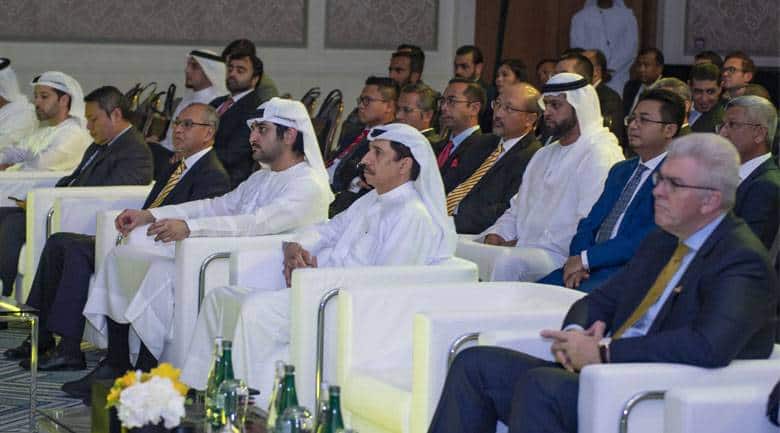Islamic finance is fast gaining traction globally. The system of baking and finance that is consistent with the principles of Islamic law, also known as Shariah law, has become a force to be reckoned with in the global economic scenario.
There are of course, several reasons why understanding and participating in Islamic finance could potentially reap benefits and long-term dividends seeing as it has developed throughout the world up to a substantial scale. In this article, we will discuss Islamic finance and its development worldwide.
1. Islamic finance is poised for growth
The modern Islamic financial industry has grown to encompass new products and involve new markets. Muslims and non-Muslims alike are now attracted to Islamic financing and there has been substantial growth which is predicted to continue for decades to come.
The global Islamic finance market is growing because of strong investments in the Halal Sectors, infrastructure and Sukuk bonds, especially via electronic modes in all products and services. According to key industry stakeholder organizations, across its three main sectors (banking, capital markets and TAKAFUL), it has been estimated that the total Islamic finance industry worth is at USD2.05 trillion in 2017.
Among these segments, Islamic banking is the largest sector in the Islamic finance industry, contributing 71% (USD 1.72 trillion) of the industry’s assets.
2. Competitive landscape
The global Islamic finance market has a large number of players who are trying to grab a significant chunk of the developing market. In the Gulf Cooperation Council (GCC) – Bahrain, Kuwait, Oman, Qatar, Saudi Arabia and United Arab Emirate, for example, the large number of international players like Dubai Islamic Bank, Kuwait House Finance and Bank Al-Rajhi are among the major players. This is because almost half of the world’s oil and gas reserves are in the Gulf region.
Some of the world’s wealthiest countries are looking for Shariah compliant products to invest in. As more of these products emerge, more of the Gulf wealth, which means more global money, will be funnelled into Islamic financial products. Which brings us to our next point.
3. Muslim customers want and need Shariah compliant products
The Muslim population is large and growing quickly. There are currently, in 2020, an estimated two billion Muslims around the world. These are the people whose religious beliefs drive them towards Shariah compliant products. As Islamic law prohibits Muslims from participating in interest-based transactions, gambling and more, Muslims are unable to put their money into conventional banks or purchase conventional investment instruments.
Read: Difference between Islamic financing vs conventional loan
Muslims therefore need financial products that offer the same types of security and rewards (savings and investments) that the conventional market offers without compromising their moral code. This is where Islamic finance comes in.
4. Non-Muslim investors’ participation
Islamic investments are based on business contracts that increase transparency and reduce speculation so that all contract partners know what to expect and what risks are involved. Ever since the capital market has been rocky (since 2008), non-Muslim investors have been seeking to reduce their risk whilst earning profit.
As Islamic investment products are very different from conventional banking, globally, non-Muslim investors have been flocking to diversify their portfolio into Islamic finance. This is because due to the diligence on the part of Islamic professionals, under Shariah law, investment products often involve less risk as compared to their conventional counterparts.
5. Globalization

With the presence of the technology, companies of various sizes can easily seek customers across the globe. Without globalization, companies are at the risk of shutting down and going bankrupt. Conventional banking certainly recognizes the need to tap into global markets as technology makes it simple to transfer assets between companies and institutions worldwide.
Many of these customers will be Muslims seeking Shariah compliant products. Financial institutions that succeed in this new economy will be global entities that meet these customers’ needs.
6. Western indexers and rating agencies
Islamic indexes are a huge industry development. Dow Jones Indexes was the first player in the Islamic indexing field and it has been joined by Standard & Poor’s, FTSE and MSCI. Therefore, Western indexers have access to benchmarks and have been tracking the performance of the Islamic finance industry in familiar ways. This builds confidence for other investors.
Conventional investors who consider purchasing sukuk (Islamic bonds) can easily compare sukuk by using the ratings system that is familiar to everyone.
As we have explained in this article, Islamic financing has shown much growth globally and will continue to do so in the years to come. Worldwide, investors have accepted that Shariah compliant products under Islamic finance is a product that is here to stay and a good industry to explore and invest in. Those who have already invested in Islamic finance have already seen results, be it good or bad and others who have yet to do so should consider Islamic finance as their next step in their financial journey.
